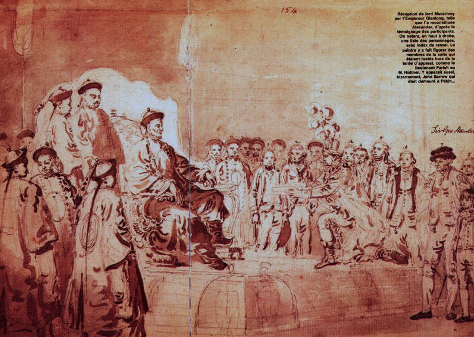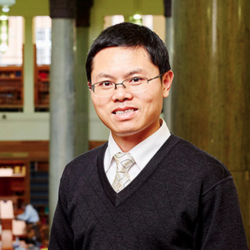Why translation and interpreting (studies) matter: Revealing the role of T&I in major events in history and now

- Date
- Wednesday 18 May 2022, 17:30
- Location
- HYBRID (via registration)
You are invited to join the School of Languages, Cultures and Societies for the Inaugural lecture of Professor Binhua Wang.
Professor Wang has been Chair of interpreting and translation studies at University of Leeds since July 2017. He served as Director of the Centre for Translation Studies (2019 to early 2022) and Programme Manager of the MA/PGDip interpreting programmes (2015 to early 2020). Before joining Leeds he had been associate professor and assistant professor/lecturer in three top T&I departments/schools in China mainland, Hong Kong and the UK.
Lecture synopsis
The important role played by translation and interpreting (T&I) in the international information flow and intercultural communication can sometimes be neglected by people. Are translation and interpreting simply verbal transfer that can be easily done by the machine in the AI age now?
In this lecture, Professor Wang will highlight the significance of T&I activities and T&I Studies by revealing the role of T&I in major events in history and international communication of news and information now. Typical examples from early Sino-British contact and from major news now will be analysed.
Through the analysis about ‘critical points’ in these major events, we will see that the stakes in international communication are always too high for T&I to be neglected and that it is dangerous to advocate a simple replacement of human translation with machine translation
Please visit the Eventbrite page to register to attend (in person at the Rupert Beckett Lecture Theatre, University of Leeds Campus or via livestream).
A drinks reception to follow the in person lecture.
About Professor Wang:
 Binhua was accredited as a Fellow of the “Chartered Institute of Linguists”. He sits on the Executive Committee of the “University Council of Modern Languages” in the UK and the Interpreters Committee of “The Translators Association of China”. He also serves as Vice Chair of the Academic Committee of the “World Interpreter and Translator Training Association” (WITTA) and Vice Chair of the “International Association of Translation, Interpreting and Cognition” (IATIC).
Binhua was accredited as a Fellow of the “Chartered Institute of Linguists”. He sits on the Executive Committee of the “University Council of Modern Languages” in the UK and the Interpreters Committee of “The Translators Association of China”. He also serves as Vice Chair of the Academic Committee of the “World Interpreter and Translator Training Association” (WITTA) and Vice Chair of the “International Association of Translation, Interpreting and Cognition” (IATIC).
He serves as chief editor of International Journal of Chinese and English Translation & Interpreting, co-editor of Interpreting and Society, guest-editor of Perspectives, Frontiers in Communication and Asia Pacific Translation and Intercultural Studies, and on the editorial boards of Babel, The Interpreter and Translator Trainer, Forum, Chinese Translators Journal and Translation Quarterly.
His research has focused on various aspects of interpreting studies and translation studies, in which he has published over 50 articles in refereed CSSCI journals and SSCI/A&HCI journals such as Interpreting, Meta, Babel, Perspectives, Translation Review, Language and Intercultural Communication and Frontiers in Psychology, as well as over a dozen peer-reviewed book chapters in Routledge, John Benjamins, Springer and Palgrave. He has also authored the monographs Theorising Interpreting Studies (2019) and A Descriptive Study of Norms in Interpreting (2013), edited with Jeremy Munday Advances in Discourse Analysis of Translation and Interpreting Studies (Routledge, 2020), and co-translated Introducing Interpreting Studies into Chinese (Pöchhacker, 2010). His textbooks for interpreter training are also widely used in China’s MTI and BTI programmes.
He has been invited to give keynote presentations in about 20 international conferences and guest talks to many universities in China mainland, Hong Kong, Macau, U.S., Canada, U.K. and European continent. He is also an invited trainer for the Centre for the Integration of Science, Technology and Culture at Cambridge University and for the annual “Training for Trainers of Interpreting and Translation Programmes in China”.
Parallel to his academic career, he has also been a veteran English/Chinese interpreter. He has interpreted for hundreds of international conferences and for high-level government delegations from China to the U.K. and the U.S.
